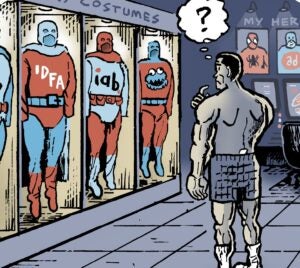Everyone buys toilet paper. But most people would rather buy their TP – or whatever the product may be – from brands that share their values.
Yet, although eight out of 10 shoppers feel this way, according to a recent Harris Poll, most brands only spend a small portion of their budget on cause marketing, often as little as 5%.
“It’s an archaic way of doing things,” said Chad Hickey, CEO and founder of Givsly, an ad platform that develops solutions for what it calls responsible media buying, including a pixel that automatically triggers a nonprofit donation when someone engages with an ad.
“If I told you that 80% of your consumers are women, you wouldn’t use that insight for 5% of campaigns – you’d have it on everything,” Hickey said. “So why not tap into consumer values in the same way as for more traditional audience signals?”
More than face value
With that question in mind, Givsly started running a pilot in mid-2024 to test audience segments built using data sourced from nonprofits, such as how frequently people donate to a cause, how much they donate, whether they volunteer and where they’re located.
Givsly has partnerships with nearly 500 nonprofit organizations, including charities that support animals, the arts, education, the environment, health, human services, civil rights, international relief and youth mentorship.
With a values-based audience, a brand that supports cancer research, for example, can reach an audience in a certain ZIP code that regularly donates their time or money to that cause.
IPG-owned media buying agency Mediahub was one of the beta testers of values-based audiences, which launched publicly on Monday.
Applying values-based targeting to the media plan is appealing, according to Marisa Halprin, Mediahub’s director of programmatic, because it enriches a brand’s understanding of its customer base.
“It’s an opportunity to make the customer profile better, bigger and more complex because we’re finding out more about the person and what they care about,” Halprin said.
Good performance
The audiences are available programmatically through private marketplaces, and brands activate them through their demand-side platforms of choice.
One QSR brand that Givsly works with used values-based audiences for a big push in Q4 to promote its education initiatives. The brand saw a 30% incremental lift in store visitation as measured by a third-party provider.
Even so, it’s not easy for tactics that feel experimental to earn a permanent place on the media plan.
“It is difficult bringing in what one might think of as a passion project,” Halprin said. “But one of the first things Chad ever said to me was, ‘We can help you hit your goals, but in a more responsible way,’ and that always stuck with me.”
Mediahub has been working with Givsly since 2022, and it’s become an “evergreen partner” since then, she said, “and not just in the cause marketing bucket.”
Live and let live
But there is an elephant in the room, which is the perceived consumer backlash against certain causes, including diversity, equity and inclusion initiatives and efforts to reverse climate change.
After pressure from conservative groups, numerous brands have withdrawn support for their climate-related and/or DEI goals, including Lowe’s, Walmart, McDonald’s, Toyota, Ford and Meta.
Eight in 10 consumers may say they prefer spending with brands whose values match their own, but in some cases that could actually mean supporting brands that don’t support certain causes.
And that’s okay, actually, in a way, Hickey said.
“As long as it’s not damaging hate speech, I think both sides need to get okay with people having conservative values,” he said. “If one of our partners wants to support something more conservative that I don’t personally agree with, that’s their right, and we’ll help.”
Still, brands need to think about – and appreciate – the diversification of our country, Hickey said, which is a moral issue as much as it can impact the bottom line.
“I’m a gay man, and when you have a major retailer say, ‘Hey, I’m rolling back on DEI,’ the fact is, they’ll lose customers like myself,” Hickey said. “I can just go somewhere else and shop.”















